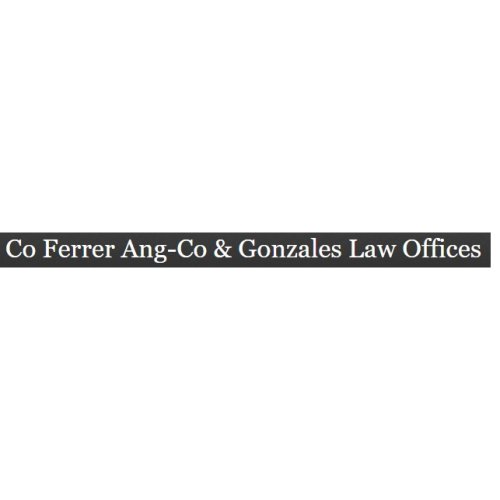Best Mortgage Lawyers in San Juan
Share your needs with us, get contacted by law firms.
Free. Takes 2 min.
Free Guide to Hiring a Real Estate Lawyer
List of the best lawyers in San Juan, Philippines
About Mortgage Law in San Juan, Philippines
Mortgage law in San Juan, Philippines refers to the legal framework and regulations governing the process of borrowing money to finance the purchase of real estate property. It involves a borrower, often referred to as the "mortgagor," offering the property as collateral to the lender, known as the "mortgagee." This collateral provides security for the loan and allows the mortgagee to seize the property if the mortgagor fails to repay the loan as agreed.
Why You May Need a Lawyer
Seeking legal advice and assistance in mortgage matters can be crucial in various situations, including:
- Understanding the terms and conditions of a mortgage agreement
- Negotiating favorable loan terms with the lender
- Resolving disputes or disagreements arising during the mortgage process
- Ensuring compliance with all legal requirements and procedures
- Protecting your rights and interests as a borrower
Local Laws Overview
While it is always recommended to consult with a lawyer for detailed legal advice, here is a brief summary of key aspects of local laws relevant to mortgage in San Juan, Philippines:
1. The Philippine Constitution recognizes and protects property rights, including the right to mortgage.
2. The New Civil Code of the Philippines governs mortgage contracts and establishes the rules and obligations of both the mortgagor and mortgagee.
3. The Mortgage Law (Act No. 3135) establishes the process for extrajudicial foreclosure of mortgages.
4. The Real Estate Mortgage Law (Act No. 3344) provides additional safeguards for borrowers, such as restrictions on the penalty interest rates.
Frequently Asked Questions
1. What is the difference between a mortgage and a loan?
A mortgage is a type of loan specifically used for real estate property purchases, where the property itself serves as collateral for the loan. While all mortgages are loans, not all loans are mortgages.
2. How does the mortgage process work in San Juan?
The mortgage process in San Juan typically involves a borrower applying for a loan with a lender, who assesses the borrower's eligibility and the property's value. If approved, the borrower and lender enter into a mortgage agreement outlining the terms and conditions of the loan.
3. Can a lender foreclose on my property?
Yes, if you fail to repay the mortgage loan as agreed, the lender has the right to foreclose on your property. However, there are legal procedures and requirements that must be followed, and you have rights as a borrower that a lawyer can help protect.
4. How can I negotiate better loan terms?
To negotiate better loan terms, it is important to have a clear understanding of your financial situation, the current market conditions, and the lender's policies. A lawyer can assist you in presenting your case and negotiating terms that are more favorable to you.
5. What happens if I want to sell my property before the mortgage is paid off?
If you wish to sell your property before the mortgage is fully paid, you would generally need to obtain the consent of your lender. The proceeds from the sale would be used to repay the outstanding loan balance, with any remaining funds typically going to you as the property owner.
Additional Resources
For further assistance and information regarding mortgage in San Juan, Philippines, consider the following resources:
- San Juan City Hall - Mortgage and Real Estate Services Department
- Philippine Securities and Exchange Commission - Consumer Protection and Investor Education Department
- Integrated Bar of the Philippines - San Juan City Chapter
Next Steps
If you require legal assistance or advice regarding mortgage matters in San Juan, Philippines, it is recommended to:
- Research and gather all relevant documents and information related to your mortgage.
- Contact a reputable law firm or lawyer specializing in mortgage law.
- Schedule a consultation to discuss your specific situation and concerns.
- Present the necessary documents and provide truthful information to your lawyer.
- Work closely with your lawyer to navigate the legal process and protect your rights during the mortgage process.
Lawzana helps you find the best lawyers and law firms in San Juan through a curated and pre-screened list of qualified legal professionals. Our platform offers rankings and detailed profiles of attorneys and law firms, allowing you to compare based on practice areas, including Mortgage, experience, and client feedback.
Each profile includes a description of the firm's areas of practice, client reviews, team members and partners, year of establishment, spoken languages, office locations, contact information, social media presence, and any published articles or resources. Most firms on our platform speak English and are experienced in both local and international legal matters.
Get a quote from top-rated law firms in San Juan, Philippines — quickly, securely, and without unnecessary hassle.
Disclaimer:
The information provided on this page is for general informational purposes only and does not constitute legal advice. While we strive to ensure the accuracy and relevance of the content, legal information may change over time, and interpretations of the law can vary. You should always consult with a qualified legal professional for advice specific to your situation.
We disclaim all liability for actions taken or not taken based on the content of this page. If you believe any information is incorrect or outdated, please contact us, and we will review and update it where appropriate.








